Hefner - Dead Media
by Benjamin Howarth
published: 26 / 6 / 2011
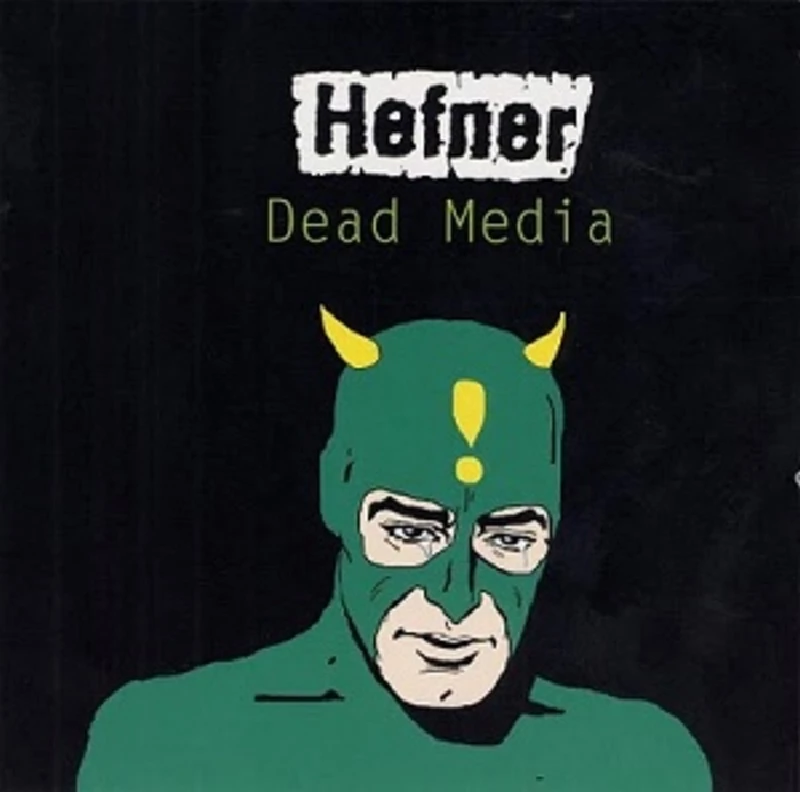
Label:
Select Label
Format: N/A
intro
Ben Howarth examines the case for Hefner's much criticised-at-the-time 2001 electronic-influenced and final album, 'Dead Media', which has just been reissued in a new double CD edition
“OK here it is, our electronic album, the curates egg, the Kid A, the Metal Machine Music. You don't like it? Fuck off then!” So Darren Hayman introduces fans to his old band Hefner’s final album on the discography section of his website. Styled at the time as ‘Britain’s biggest small band’, Hefner armed themselves with “broken analogue synthesizers, antique drum machines and battery-powered amplifiers”, and annoyed two thirds of their fanbase, none of whom ever had the chance to come back, as the band broke up a year later. I interviewed Darren Hayman, while he was holed up in a self assembled studio in his kitchen, making ‘Dead Media’. He knew then it wouldn’t have the easy appeal of ‘We Love the City’. “I’d like more people to like us, of course, but not at any cost,” he said. “We are currently making our most insular and arrogant record, after our most giving one, so I can honestly say we’re not governed by the bank balance.” I also asked him how he rated Hefner’s music. If you ask him now, he will tell you that he finds ‘Breaking God’s Heart’, Hefner’s debut, almost impossible to listen to. Then, however, he said “The first album has all this awkward naivety about it and to my ears is quite bizarre, so I guess that remains my favourite.” I don’t think Hayman wanted to return to making records that sounded actively lo-fi. But he certainly wanted a change from the careful arrangements that were used on ‘We Love the City’. I think what he missed was the sound of a band learning of the job, taking risks and finding ‘happy accidents’. Learning to use vintage synths from scratch allowed the band to re-adopt what Hayman termed the ‘cavalier’ approach of their early days, without faking a lo-fi sound they’d outgrown. A funny coincidence is that Hayman ended up reissuing this in the same month that 'McCartney II', the solo-Beatle’s short lived foray into electronic music, came out. If you buy both, you’ll notice that only half of the songs are actually synth-driven. As important to ‘Dead Media’ as the synths, however, was Jack Hayter’s pedal steel. It gives these songs an eerie melancholy that is a defining aspect of Hayter’s solo material but doesn’t really exist anywhere else in Hayman’s catalogue. Just as only a small part of ‘We Love The City’ was directly about London, so ‘Dead Media’ isn’t actually an album about eight tracks and betamax. Instead, the album works around a few key sub-themes. Many songs discuss newfound domesticity, tempered with nostalgic looks back at childhood. Intertwined with this are hints that Hayman was questioning whether he should give up music and look for a new career. “It’s about changing your life and growing up, making decisions at those big crossroads in life”, he told Pennyblackmusic shortly after its release. “The album is much less about a relationship then you might think. It’s about getting old.” Some of the musical arrangements are exquisite – ‘Junk’ – starts slowly with just a keyboard, slowly building up with pedal steel and horns. No synths audible on this one, but it’s one of Hayman’s cleverest songs, and he often plays it live to this day. ‘The Nights Are Long’ has a skiffle-folk arrangement, and the only difference between this and the songs on ‘Boxing Hefner’ is that Hefner have got better. Imagine playing this one to the younger-Hefners, when they were making their discordant debut. and telling that it would only be four years before they were this good. ‘The King of Summer’ could, in another life, have been a blast of sunkissed relief on ‘The Fidelity Wars’, a blast of punky telecaster. Instead, Jack’s pedal steel is at the top of the mix, and. just when the song seems like it might take life, the electronic notes come in gloomily, making the end impression one of sadness and regret. 'Half a Life' is one that I think McCartney might be a little jealous of. A simple sentiment – “Thank you my sweetheart/Life without my sweetheart is only half a life” – and a simple arrangement you could easily play yourself. Suddenly, by the end of the song, Hayman seems to have added in a range of counter-melodies and extra instruments without you even noticing. On this one, they reverse an analogue tape deck to get a funny sounding synth/guitar solo. It’s crucial to the track, because it gives the mind something unexpected at just the point when the sentimental chorus might have become cloying. Jack sings part of this one – something Hefner would probably have done more often if they’d made more albums. Amelia Fletcher, who was an auxiliary Hefner member during the 'We Love the City' sessions, re-appears on 'China Crisis', which is probably the album’s best track, a sad, slow-burning ballad with a catchy chorus. This is an older song, hidden away on an EP, which the band (rightly) felt deserved a more prominent spot, and it’s another that has survived a decade and still gets played live. The problem, I think, is not that this was a bad album. It’s that, faced with the prospect of retro-synthesisers, lots of people didn’t bother to buy it Not everyone hated it. When David McNamee interviewed Hefner for this website shortly after the release of 'Dead Media', he said it was his favourite album of 2001. The writers from another website, SoundsXP, made it their album of the year. The All Music Guide website wrote, “Hefner... prove that they're too smart and talented to sit back and rest on their considerable laurels”, and concluded that “Blaring synths, weird sound effects and samples, crunchy organs, and warped bass thumps abound throughout most of the album's 15 songs. There's not a clunker to be found.” Analysing the commercial failure of 'Dead Media' is complicated. Certainly, there were fans – and critics - who simply didn’t like the synths. There were also some people, who may not have been Hefner fans before, who would have preferred the band to embrace electronic music completely rather than seek a halfway house between electro and indie. But, even as Hefner had their most commercially successful album, the notion that that Hefner were on the verge of something disappeared. The music press seemed to start taking them for granted. Having marketed the odds ‘n’ sods round-up ‘Boxing Hefner’ enthusiastically - Too Pure seemed to let things slip. Belle and Sebastian’s surprise success two years earlier had shown that, with a little extra care, the ‘niche’ indie audience was actually potentially very large. Instead emphasising Hefner’s quirks, Too Pure ran out of ideas. The NME’s Mark Sutherland once dismissed covering the Boo Radley’s post-chart success album “C’Mon Kids” by saying, “They were a pop band who had success and now they’re not. That’s the only story any decent journalist is going to write about this album”. It’s easy to imagine a similar conversation took place about Hefner. Music journalists instinctively prefer writing about brand new bands, as the ‘story’ writes itself. Sutherland was wrong – unquestionably, a story about the Boo Radleys turning their back on chart fame would have been interesting, just as a conversation about ‘Dead Media’ was more interesting than an interview with JJ72. But conventional wisdom is hard to break. Another argument was the perception that Hefner had abandoned the lyrical style that made him popular. The choice of ‘Alan Bean’ as the lead single didn’t help here – it being a character based song with Hayman imagining the fourth man on the moon wondering about his family as he returned into the earth’s atmosphere. You learn more about Hayman from his stories than from ‘The Hymn for the Cigarettes’. ‘Alan Bean’ falls to earth wondering how his family are, and decides that he will give up space travel to start a new career as a painter. Given that Hayman paints himself (he designs and draws all of his record sleeves), this song fits into the sub-theme of Hayman considering a career outside of music. Some of the material seemed like an attempt to get the record label off their backs, and lets the album down. With ‘Trouble Kid’ and ‘Peppermint Taste’, Hayman seems to have been trying to repeat the ‘throwaway’ songs, ‘Pull Yourself Together’ and ‘Hello Kitten’, and he later wrote, “It was the only time I wrote a song with the cynical intention of trying to do something that would sell. It shows in the result and I'm quite ashamed of it now.” It’s a shame that one or two of the leftovers from this period – some play out the first disc of the reissue and others are on the 'Catfight' compilation – weren’t included instead. “We did so many songs for Dead Media and I'm not sure that we made the right choices in the end,” Hayman said. There are lots of ‘what if’s?’ Would recording these songs on old telecaster have persuaded John Peel listeners that, after a brief foray into mainstream indie-pop, that Hefner were their own special band again? Would a bigger role for Ant and John in the recordings have lead to sharper arrangements allowing the media to hail 'Dead Media' as an innovative about-turn, rather than a puzzling curio? Would a different label have bothered to promote it? Dead Media wasn’t quite the final Hefner release. 'The Hefner Brain' EP followed less than a year later – and saw the synth-pop agenda pursued further. An alternative mix of ‘When The Angels Play Their Drum Machines’ is sharper than the album version, with the melody brought to the fore. 'The Baggage Reclaim Song' is one of Hefner’s best songs. “I would put it on any Hefner best of and it’s the last time all four of us appeared on the same song,” says Hayman. In their earlier days, Hefner did a run of EPs on other labels – the ‘Hefner Heart’ and the ‘Hefner Soul’ – and this release was a nice reward for those fans who had stayed the course. I think the band had already decided to break up by this point, although work had begun on a new album. ‘Dead Media’, ultimately, was a failure. It didn’t convince Hefner’s fanbase to follow the band on a journey through different genres. It didn’t win over fans of these different genres. It didn’t sell well. Hefner didn’t break up because they hated each other, and they didn’t sink into artistic decline. Indeed, the songs Hayman was working on when the band broke up were better than anything he’d done before (the commercial success of his next band, the French, makes ‘Dead Media’ look like a runaway success, but ‘Local Information’ – up next in the reissue series – is already getting a deserved critical reappraisal and was a buried treasure in Mojo recently). The main factor seems to be the new record deal Too Pure offered the band not being able to support all four of them. On the sleeve, Hayman writes “I hope you enjoy 'Dead Media'. Some hate it, some love it, but it’s nobody’s second favourite Hefner album.” Actually he’s wrong. 'We Love the City' has Hefner’s very best songs, and fewer flaws than 'Dead Media'. But, ‘Dead Media’ has aged better than the band’s first two albums, and fits more neatly alongside Hayman’s subsequent work. It’s close-run between the two, but I think it is my second favourite Hefner album.
Track Listing:-
Band Links:-
http://hefnet.com/https://www.facebook.com/profile.php?id=100057965866015
https://twitter.com/darrenhayman
Have a Listen:-
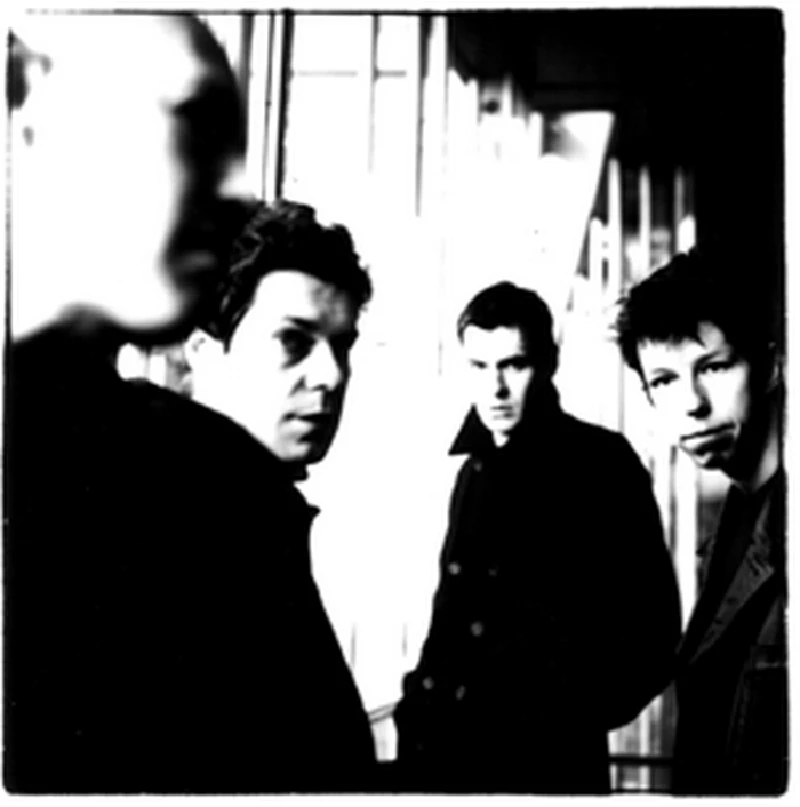
interviews |
|
Interview (2006) |
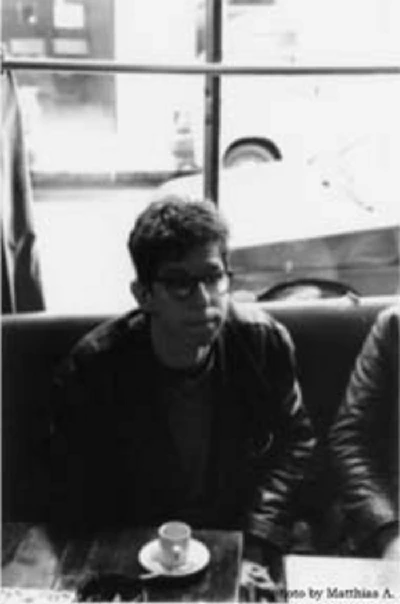
|
| Former Hefner frontman has recently returned with his first solo album. 'Table for One'. He talks to Ben Howarth about why Hefner decided to part company and the new album |
| Interview (2002) |
| Interview (2000) |
favourite album |
|
We Love the City (2009) |
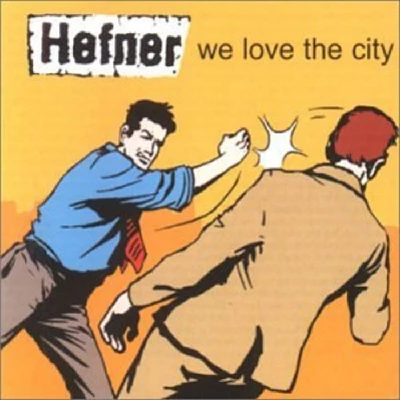
|
| In our 'Re:View' series, in which our writers rrflect on albums from the past, Ben Howarth looks at Hefner's 'We Love the City', which originally released in 2000, has just been reissued in a new double CD edition |
| The Fidelity Wars (2008) |
reviews |
|
Steve Lamacq 24.03.99 (2022) |
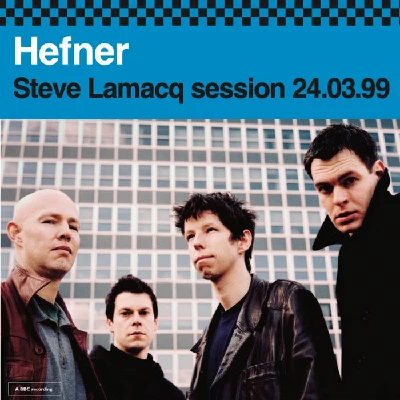
|
| Late-90s cult legends Hefner release another beautiful BBC session EP which peels back the years |
| Catfight (2006) |
| The Best Of 1996 - 2002 (2006) |
| Good Fruit (2001) |
| We Love The City (2001) |
| Boxing Hefner (2001) |
most viewed articles
current edition
Carl Ewens - David Bowie 1964 to 1982 On Track: Every Album, Every SongArmory Show - Interview with Richard Jobson
Bathers - Photoscapes 1
Colin Blunstone - Thalia Hall, Chicago, 16/7/2025
Visor Fest - Valencia, Spain, 26/9/2025...27/9/2025
Billie Eilish - O2 Arena, London, 10/7/2025
Robert Forster - Interview
Loft - Interview
John McKay - Interview
Editorial - July 2025
previous editions
Heavenly - P.U.N.K. Girl EPManic Street Preachers - (Gig of a Lifetime) Millennium Stadium, Cardiff, December 1999
Oasis - Oasis, Earl's Court, London, 1995
Trudie Myerscough-Harris - Interview
Beautiful South - Ten Songs That Made Me Love...
Pixies - Ten Songs That Made Me Love...
Prolapse - Interview
Simon Heavisides - Destiny Stopped Screaming: The Life and Times of Adrian Borland
Paul Clerehugh - Interview
Doris Brendel - Interview
most viewed reviews
current edition
Amy Macdonald - Is This What You've Been Waiting For?Sick Man of Europe - The Sick Man of Europe
Alice Cooper - The Revenge of Alice Cooper
Phew, Erika Kobayashi,, Dieter Moebius - Radium Girls
Davey Woodward - Mumbo in the Jumbo
Lucy Spraggan - Other Sides of the Moon
Blueboy - 2
Cynthia Erivo - I Forgive You
Philip Jeays - Victoria
Lapsley - I'm a Hurricane, I'm a Woman In Love
related articles |
|
Bromide: Interview (2015 |
| Darren Hayman: Feature (2014) |
Pennyblackmusic Regular Contributors
Adrian Janes
Amanda J. Window
Andrew Twambley
Anthony Dhanendran
Benjamin Howarth
Cila Warncke
Daniel Cressey
Darren Aston
Dastardly
Dave Goodwin
Denzil Watson
Dominic B. Simpson
Eoghan Lyng
Fiona Hutchings
Harry Sherriff
Helen Tipping
Jamie Rowland
John Clarkson
Julie Cruickshank
Kimberly Bright
Lisa Torem
Maarten Schiethart